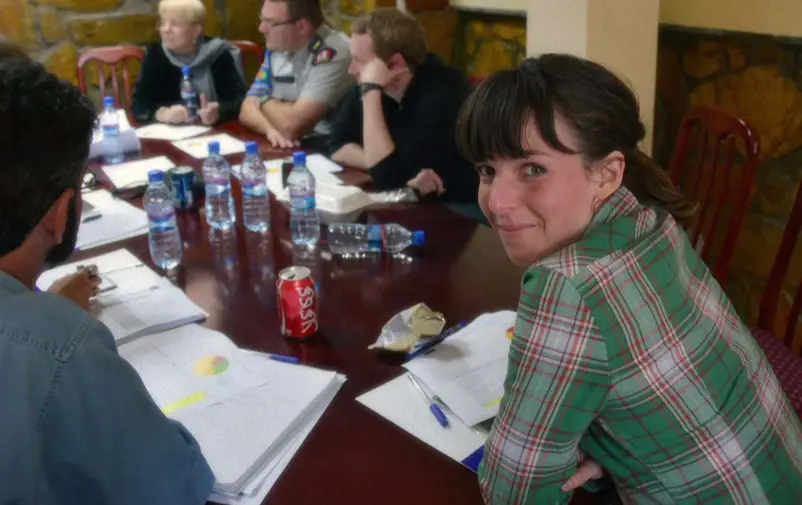
The 1325 Scholarship was established in memory of gender equality expert and peacebuilder Zaida Catalán.
The present brief summarizes the research findings presented in the joint Research Brief series and lays out its implications and recommendations for policymakers and practitioners.
Research on the political integration of armed groups makes it clear that there is no single recipe for peaceful political transition. It is not possible to say that a particular sequencing will inevitably lead to sustainable peace, or that formerly armed groups will moderate their claims if certain sets of conditions are obtained. Instead, this body of research supports the view that such transitions involve a multitude of factors and that fine-grained, context-specific analysis is always necessary. Nonetheless, drawing on the findings presented in the joint Research Brief series, as well as the larger body of research on the political integration of armed groups, we present seven recommendations that could help open pathways and clarify options for international engagement on DDR.
This research brief series has been initiated through a collaboration between the Politics After War (PAW) research network, the Folke Bernadotte Academy (FBA), and the United Nations Department of Peace Operations, Office of Rule of Law and Security Institutions: DDR Section (UNDPO/OROLSI/DDR) with the aim to provide research perspectives and scientific evidence on the intersection of DDR and politics with a particular emphasis on the transformative dynamics of armed groups and combatants.
Political Integration and Post-war Elections
Political Engagement by Former Armed Groups Outside Party Politics
Peace Agreements and the Political Integration of Armed Groups
DDR and Post-War Politics: Lessons from Northern Ireland
Rebel Party Organization and Durable Peace after Civil Conflict
Women and Rebel to Party Transitions
Ideological Moderation in Armed Groups Turned Political Parties
Former Armed Groups in power and Post-war Youth Policies
MORE FROM HOME
Are you a young peacebuilder at the beginning of your career with a strong commitment to women, peace and security? Do you have experience working in this field in the Democratic Republic of Congo or Afghanistan and want to take your commitment to the next level? Then you have the opportunity to apply for the 1325 scholarship for 2026.
2025-11-06 15:30FBA has both increased and adapted its work in Ukraine in the wake of Russia's invasion.
FBA in UkraineKlara Grenhagen works as a specialist at FBA's Africa unit with a focus on dialogue, reconciliation and peace processes.
More about our expertsFBA is part of Sweden’s development aid within the area of peace and security
Read more about the countries where we work